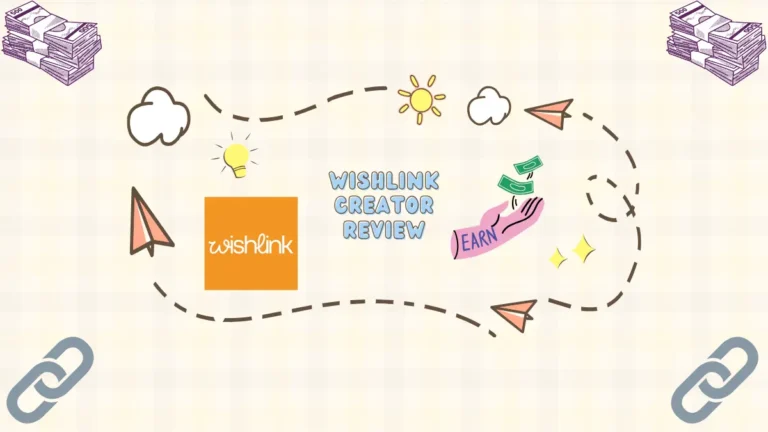There’s no doubt about it—the way businesses used to operate just doesn’t work anymore. These days efficiency and accuracy are key to achieving sustainable growth, both in the short term and long term.
With the rise of Robotic Process Automation (RPA), companies can now automate mundane, repeatable tasks across their organization – reducing administrative costs. And boosting efficiency, so that they can focus on core business goals.

Moreover, the global economic impact of robotic process automation (RPA) will be $13 billion by 2030. If you’re willing to try something new and keep an open mind, you can leverage RPA to transform your business.
And it doesn’t require shutting down operations and starting from scratch. Let’s understand how RPA can help your business transform and accelerate.
What Is Exactly RPA?
RPA stands for Robotic Process Automation, which is a software robotic solution that allows you to automate tasks that have been traditionally done by humans. A big advantage of this type of automation is that it removes the need for repetitive manual work.
Instead, the tasks are automated so that they happen automatically when needed. For example, if you want to automate production at your manufacturing plant, you can infuse smart machines and RPA software solutions to automate several tasks.
Succinctly, Robotic Process Automation (RPA) boosts business transformation and automation to maximize organizational efficiency and save money by automating routines or tasks. This automation enables organizations to streamline more complex routines on a mass scale, which is perfect for transforming business operations.
With RPA in place, employees are able to save time by doing things such as:
- Automating emails
- Providing smarter customer support
- Extracting data in record time
- Running automatic pricing analyses
- Completing employee payroll
Wondering how this can help in business transformation and acceleration? Let’s understand.
Business Transformation With RPA
#1. Streamlined Customer Experience
RPA (Robotic Process Automation) has been changing the way businesses handle their customers. Essentially, it removes much of the time-consuming and tedious work when resolving tickets by saving employers 90% of operational expenses just in labor costs alone.
For instance, RPA can be used to automate customer interaction tasks such as calling or emailing. Now employees don’t have to manually go through the lengthy process of gathering information from other applications (such as e-commerce sites) for customers on their own.
Businesses can rely on RPA to automate this process – with varying levels depending on company size/requirements.
#2. Automated Responses & Triggers
You already know that every RPA system has scheduling capabilities. And it operates way beyond the scope of a scheduler. However, even then it assists managers by enabling completely automated and semi-automated scheduling.
The former scenario only triggers and responds in circumstances of a particular event—majorly a human activity (faulty or deliberate). In unattended automation, it’s not necessary that the trigger should be a human action. It can be anything such as a document or email.
Meanwhile, businesses can identify critical areas in their operations that should be automated using such trigger and response schemes.
#3. Organizational Data Sorting
Big data is an integral part of how businesses work today. Smaller Businesses preside over more and more data now, especially since the world has become increasingly digitized. With this growth comes an increase in efficiency opportunities.
And technology like (RPA) can work round-the-clock sorting through large amounts of information without making errors or taking breaks. In fact, RPA automation can streamline processes that would take humans hours if not days to complete—time that could be spent on tasks requiring higher levels of cognitive ability.
#4. Analytics For Better Decision Making
The benefits of having no human involvement in your data gathering are also important when it comes to providing you with meaningful insights and analytics. The sheer number of sources that can provide these insights is valuable.
For decision-makers, quality data means everything. And unfortunately, there are so many ways one could receive bad data thanks to human error. With the RPA system, not only will managers endlessly be able to process large quantities of data quickly and efficiently.
But they will know where good information lies by using programming bots with certain guidelines. And if it comes to going through big piles of data goes-RPA is unparalleled in carrying out such tasks.
Thus, this really isn’t a small feat either– now companies rely more on their collected data than ever before; whether it’s for market research or assessing employee performance.
#5. Optimized Resource Allocation
Repetitive and tedious tasks carried out by humans are often susceptible to errors. The risk of errors needs to be removed in order for businesses to achieve high efficiency in their operations.
RPA systems are experts in automating routine business processes, freeing up employees from boring, monotonous jobs. So that employees may focus on strategic undertakings that deserve their time and attention.
#6. Enhanced Data Security
As mentioned earlier, RPA systems are created particularly to perform specific tasks. What’s more, because they work on a very granular level, there is no risk of data leaking between different departments. Data accesses are always well documented and controlled.
The effect that Robotic Process Automation has on businesses is often misunderstood. There’s a common misconception that this smart robotic technology will eat up human jobs. In actuality, the truth couldn’t be any farther from what actually happens when implementing RPA.
It only requires an employee base that can manage (and control) both people and machines alike. Any new technological innovation. It creates a huge number of jobs than it takes away. So as long as you train your valuable employees properly to adapt and embrace the change in skill set.
#7. Improved Communication
RPA bots use triggers and procedures to automate common tasks such as document generation or modification. It relieves employees from the pressure of having to manually update a document all day long, allowing them more time for strategic tasks.
Furthermore, RPA ensures that core business processes are executed efficiently, while also providing field workers and end-users with the latest information at all times.
#8. AI & IoT Driven Enterprise Ecosystem
Automation and connected devices are major needs of futuristic businesses that want to speed up their employee productivity. RPA systems can collaborate with IoT devices to share and process data while providing intelligent responses.
Moreover, the demand for AI solutions is increasing across industries, AI and RPA synergy can help businesses get the most out of it and improve ROI by enhancing customer experience.
Some Practical Examples Of RPA Implementation & Application
- Extracting data concerning competitor pricing
- Data migration between different banking applications
- Reporting for doctors
- Medical bill processing
- Automation of insurance data
- Loan claims processing
- Backing up teller receipts

Wrapping Up
Robotic process automation (RPA) software has a multitude of benefits for small and midsized businesses alike. RPA was made popular thanks to its affordability in recent years, which is why it’s seeing such significant growth.
With this system, an enterprise can improve both efficiency and productivity by streamlining manual tasks and optimizing its workforce. Moreover, with these tools at their disposal – companies can enjoy increased operational capacity while delivering superior customer service or interactive experiences.
This is only one part of the digital transformation that’s changing the way small business operates in this ever-changing landscape. So, if you’re looking to find out more information on how your company could potentially benefit from it then we recommend connecting with RPA experts.



